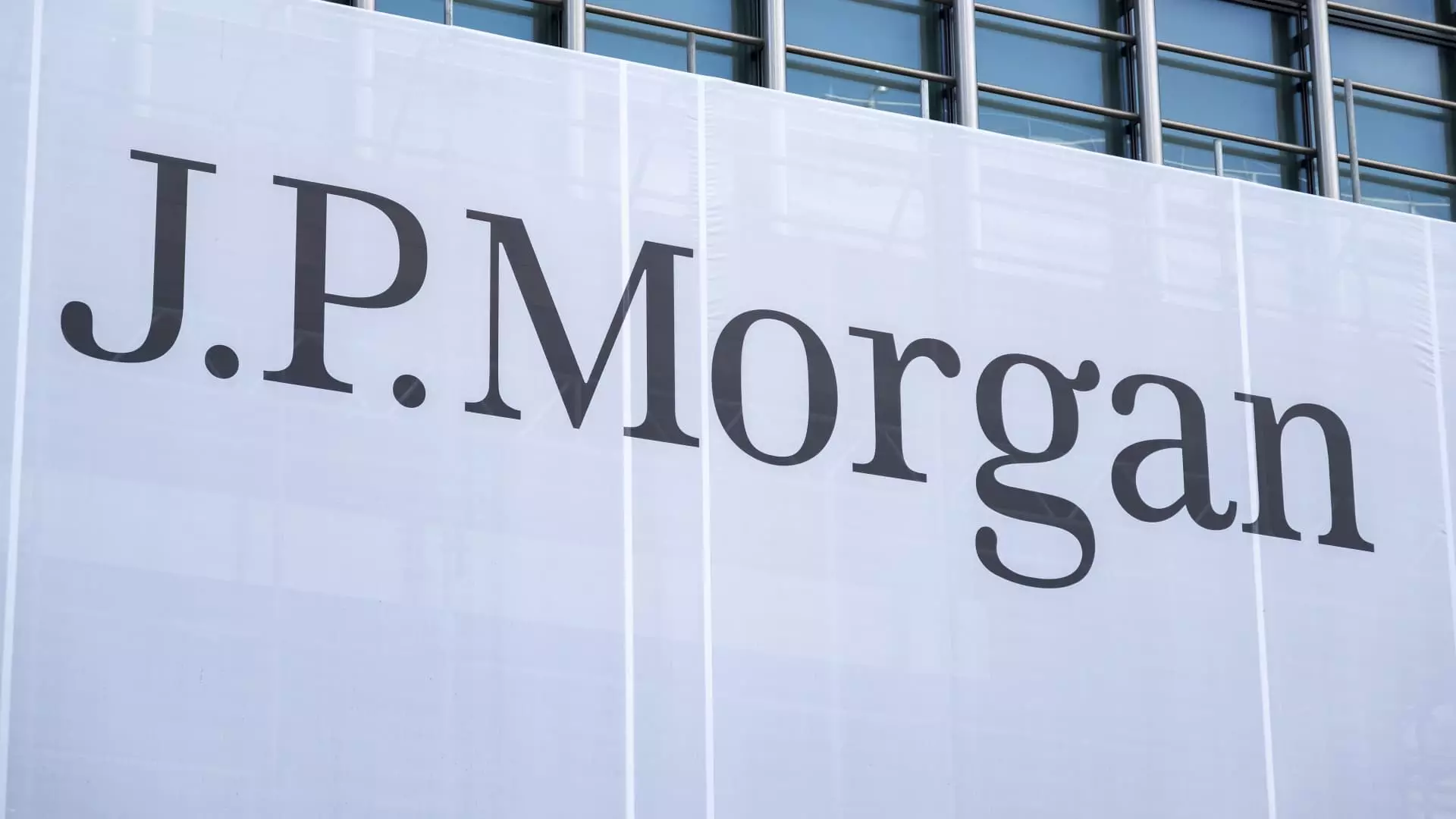Recent developments regarding JPMorgan Chase have sparked renewed scrutiny among investors. Baird’s analyst, David George, has made bold claims about the stock’s future, downgrading it from neutral to underperform with a discouraging price target of $200. This recommendation implies a potential downside of approximately 19% from the stock’s closing price on the previous Wednesday. Given the current trading levels and market expectations, George’s downgrade poses significant questions about the bank’s risk-reward dynamics and overall market performance.
George’s analysis suggests that JPMorgan Chase is currently “over-earning,” particularly in net interest income and credit sectors. The assertion presents a critical viewpoint that implies the stock is overvalued and risks investor capital. He points to various metrics demonstrating this overvaluation, including the stock trading at around 2.6 times tangible book value and over 14 times the anticipated 2026 earnings per share. George argues that high expectations and inflated share values make the stock an unattractive option for prospective or existing investors.
According to George, the expectation of continuous growth fueled by favorable market conditions may not adequately reflect JPMorgan’s actual earning potential. He describes current valuations as close to historical highs, raising red flags for potential investors. While other analysts maintain a more optimistic outlook—with 15 out of 24 providing a buy or strong buy rating—George’s perspective introduces a counter-narrative that emphasizes caution and a critical reassessment of the stock’s future viability. His sentiments echo a growing trend of skepticism in an ever-evolving financial landscape, which warrants consideration by investors.
Despite speculation on the prospect of a more favorable regulatory environment under a potential second Trump administration, George casts doubt on the efficacy and likelihood of JPMorgan Chase expanding its stock buyback program. He elucidates that even if regulatory landscapes shift, the valuation of JPMorgan at present renders significant buybacks ineffective in enhancing earnings per share. This revelation necessitates a deeper analysis, as shareholders often look to buybacks as a mechanism for value enhancement and capital return.
George’s critical downgrade of JPMorgan Chase shares highlights an important conversation about value investing in the financial sector. His emphasis on the stock’s high trading multiples and potential over-earnings serves as a stark reminder for investors to approach their financial decisions with prudence. As market conditions evolve, it may be wise for those invested in or considering JPMorgan Chase to thoroughly evaluate their positions, taking into account both optimistic narratives and bearish analyses like George’s. The confluence of regulatory changes and market sentiments may serve as a tipping point for these financial giants, shaping the trajectory of their stock performance in the near future.


Leave a Reply